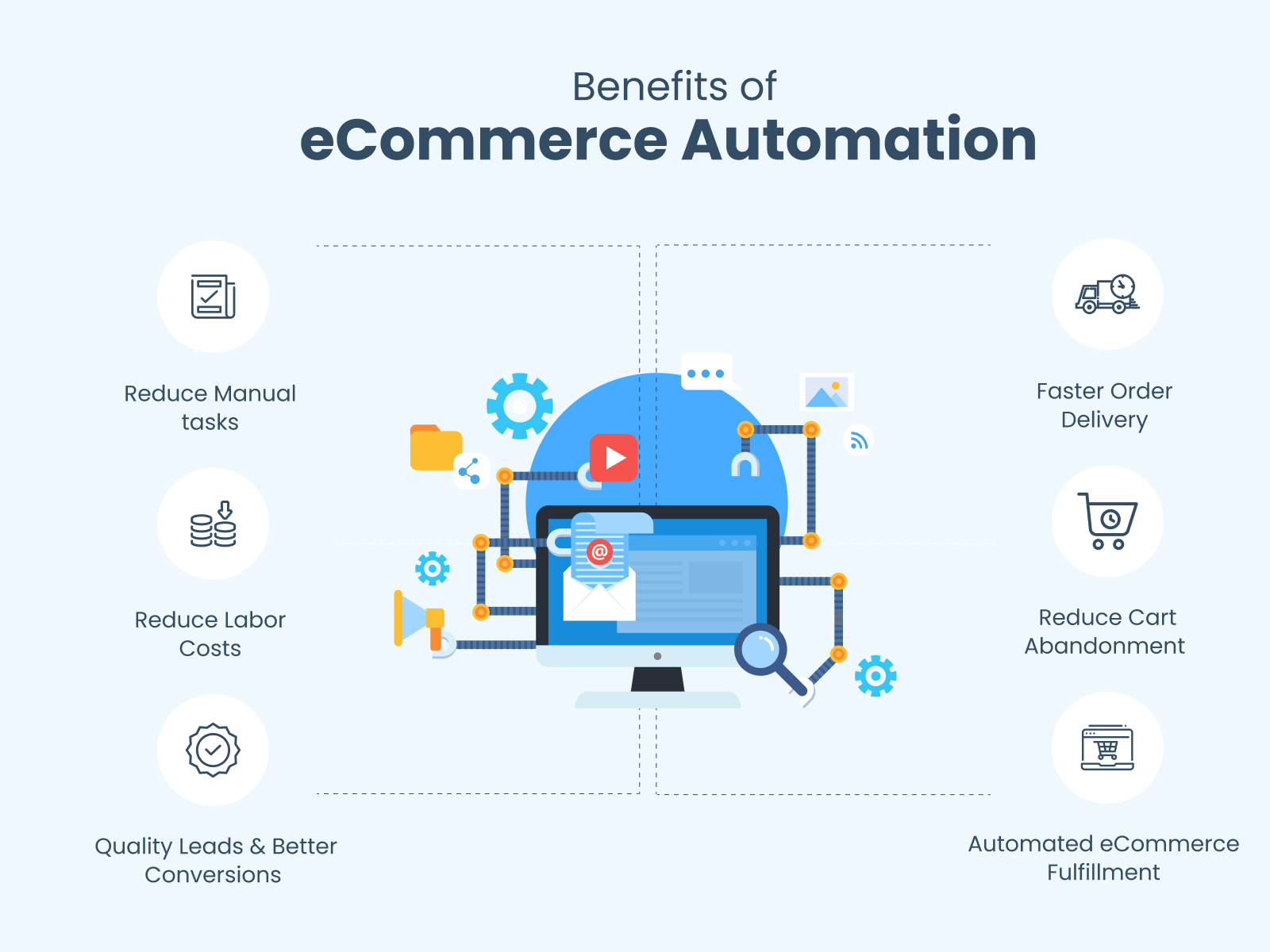Automation: The Key to Optimization in eCommerce
E-commerce has experienced exponential growth over the past decade and, with it, consumer expectations for speed and personalization. To stay ahead of the curve, companies must find more efficient ways to manage their operations. One of the most powerful tools to achieve this is automation. It can streamline key processes and improve the customer experience without increasing the workload.

Inventory Optimization
One of the primary areas where automation excels is inventory management. Through technological tools, systems can be implemented to update stock in real-time and manage purchase orders automatically. This prevents the overselling of products and ensures that stores are always well-stocked. The ability to respond quickly to inventory changes is crucial to maintaining customer satisfaction and optimizing resources.
Automated Order Processing
Order processing can become a challenge as volume increases. Automation allows the entire order lifecycle, from confirmation to shipping, to be managed efficiently. Businesses can integrate platforms that automatically send tracking notifications, handle returns, and process refunds without human intervention. This improves accuracy and reduces wait times, resulting in a better customer experience.
Automated Customer Service
Chatbots and automated response systems are key tools in automating customer service. These systems can handle frequently asked questions, solve simple problems, and redirect more complex inquiries to the appropriate staff. This not only saves time but also ensures 24/7 availability for consumers, enhancing customer satisfaction.
Automated Marketing
Marketing also benefits from automation. Email campaigns, abandoned cart reminders, and personalized recommendations are managed by software that analyzes customer behavior. This allows for more efficient market segmentation and the targeting of specific offers that increase conversions.
Automation in eCommerce is an indispensable tool for companies seeking to improve efficiency and meet the growing expectations of consumers. From inventory management to marketing, automation reduces errors and allows businesses to focus on strategic growth.
